Column

As we round off the seventh decade after the event, Ekushey has become culturally entrenched and part of the semiotics of national identity construction, particularly of a cluster of the middle class. The loyalists of this significant landmark are many and shall be there for long but after 70 years, the politics that birthed Ekushey is changed and that has changed the context of its meaning today.
The colonial roots
What was an economic exclusionary administrative decision of a section of Pakistan's initial ruling elite met with a counter challenge that ultimately became political in nature. However, the nature of politics has also changed fundamentally with 1971 and with that has come an updated interpretation of Ekushey. What did it mean in the first place and what does it mean now?
Language has been an element in colonial conflict due to the advantages it gains for a user. English education was the key to the entry into jobs and the role of education institutions was exactly that, create job holders and in the process ensure their loyalty to the colonial administration and state.
The ones who took to jobs in the first phase were the Bengali Hindu community middle class who had experience as a hired class. They were also not antagonistic to British rule and had no reason to in the initial 100 years. Some saw colonialism as a better replacement for the Turko-Afghan feudal rulers.
The Bengali Muslim middle class basically didn't exist at that time. They were mostly peasants and a few land holders. Middle class ambitions were less too as this "missing middle" had no English education.
Social aspirations began as they started to get educated funded by the rise of the middle class in the rural economy and a few surplus jobs. This was not the case in Bengal alone but all over India which ultimately led to the English education revolution.
Some of the colonial institutions that played a role in Bengali Muslim education were the Kolkata Madrassa etc. and organizations like the Mohammedan Literary Society, the Anjumans etc. The biggest all India project was the Aligarh movement based in the UP. The objective of all was to gain entry into jobs through English education. It came in the wake of the Sepoy led resistance.
Of course this couldn't happen without promotion by the British. They became keen after 1857 to promote a new loyalist class from among the Muslims of India. Initially, they were suspicious of them as having Mughal loyalty and after the 1857 resistance, investigated if the students of the Madrassa were involved in the Sepoy resistance or not. They found that the students wanted English education and jobs more than anything else.
The Hindu Bengali elite class was firmly behind the British in 1857 as their source of privilege was colonialism and therefore didn't wish to challenge their source of livelihood. Subsequently, the two middle classes, one established and the other aspirant came into conflict and created the foundation for middle class activism for what was essentially a peasant resistance based independent state making movement leading to 1947. This applies to Bengal at least.
The post 1947 scenario
The Indian United Province (UP) led salariat - salaried workers- middle class, an integral part of the statist movement came to power in Pakistan. And since the Pakistan model was based on supremacy of the Aligarh community - the exclusion of others was an obvious consequence. It was not an innovative model but a copy of the earlier British policy.
The British had restricted English education to favour one group over others but later had to lift it and let both sides compete. Pakistan Muslim League had tried this policy internally within the party but Bengal Muslim leaguers had opposed it in the 1906 foundation days, in the 30s and later too.
As Pakistan was a "false" state, that is it did not fulfill any of the criteria of a real/complete state include state objectives, its attempts to combat opposition and restrict privileges were also clumsy. It was built on denial of "independence" to the East Pakistan - Delhi Resolution of 1946 - so they felt no obligation as east Pakistan was a forcibly added part of Pakistan.
On the other hand, at least some middle class East Pakistanis, denied of jobs before under colonialism had hoped for some crumbs after 1947. But they found their hopes dashed after as Urdu was designated as the sole language for media, civil service and education in the first few months after August 14, 1947.
The constitution making process was initially similar also. The Basic Principles Committee of the constitution also recommended Urdu as the sole state language. But by the time Jinnah arrived in his only trip to Dhaka in 1948, one Pakistan was clearly not in evidence among the East Pakistani middle class if it ever was. Protest was already loud.
Jinnah didn't expect resistance so early. Seeing the situation, Jinnah backtracked and said that business of the provinces could be conducted in any language but inter-wing matters - state language- would have to be done in Urdu. He was more worried about the rise of "provincialism" which ultimately became the independence movement and thought that forced unity through a common lingua franca could help. He also cautioned people about overdoing the "language" issue and threatened them by promising to deal with it. Jinnah doesn't come out as a very insightful leader in history from 1946 to his death. He basically ensured the death of his own state making in 1971 through the shambolic centralized dogmatic ideology which ensured that army rule was the only way out.
From language to politics to culture
By 1952 Ekushey, the situation was overheated and exploded. The affected middle class - centred around Dhaka university - rebelled and the firing created the martyr logy that became a major weapon of the middle class participation in what came later. In the constitution of 1955, both Bangla and Urdu became state languages.
Essentially, the main argument for the Ekushey was gone but denial and resentment against Pakistan never did. The production of the language based identity's metaphysical core had begun to gel by then. Among the songs that Ekushey produced was one which said ; "Ora amar mukher bhasha kaira nite chay" (They want to snatch away my own language/ tongue) . It became the cultural belief that the attack was against the entire language use though factually it was not so.
What it was doing was restrict entry for jobs. The Bengali Muslim was stuck once more with an unfair competition system. Of course, if everyone was forced to learn Urdu to do any job the impact would be high in terms of local cultural compromise. But that early informal policy statement didn't last more than a few months. By early 1948 it was weakened as Jinnah's speech shows and by 1955 language status was constitutionally the same.
More importantly, after the death of Jinnah in 1948 and the assassination of the main guru of the supremacist Urdu group - Liaquat Ali Khan - the Muhajir/Aligarh/Urdu group, lost most of its clout. Power shifted to the Punjabis who took over the army and the business world, where Pakistan's real power lay. Civil service and the rest mattered much less - more a facilitating group - so the language hence Indian UP group's tactics ceased to be a major issue in Pakistan policy.
Economics was the big issue and that's what the fight was played out between the East and the West. But the emotive mother language /Bangla continued to play a part among with the middle class, always a late comer and always playing politics of convenience. The cultural class rise in language nationalism prominence is based on the issue.
In 1971, language was not a significant inspiration barring a segment of the middle class as it was a multi-class war where different interests played out. However, in the post 1971 scenario it continued to play a role as a constructor of "self" which was facing challenges as society changed and transitioned.
The problem is, language and culture in isolation doesn't really go far. The idea that politics is based on cultural identity has never been strong including in Bangladesh. But in this globalized world it's even weaker. However, to a group - the old middle class and its remnants - it's the only sanctuary. But this rather weak segment of the dependent middle class is facing a task which is impossible to sustain when new economics has risen and social media has made cultural boundaries so porous nd international.
Basically, language as an issue has expired and while it will survive as a cultural product the rest won't be there as evidence shows. There are many competing cultural contents now. Of course, class also plays a role. The supporters of the "Ekushey" dogma are the least strong segment among the middle that is regularly ignored. In this pursuit to establish language culture based society along the lines of religious totalitarianism seems increasingly difficult as it has shown.






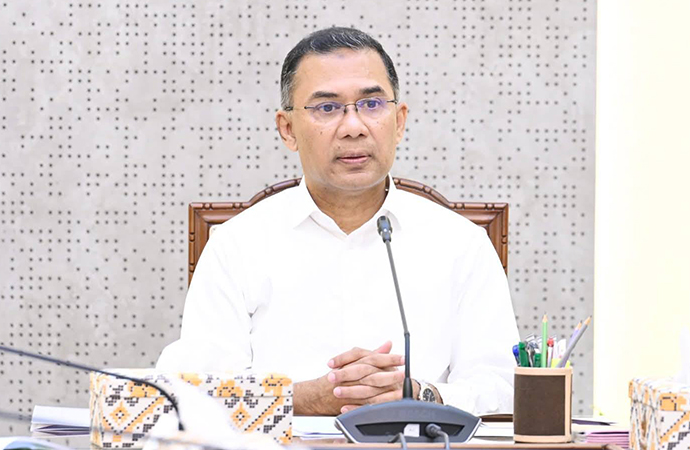
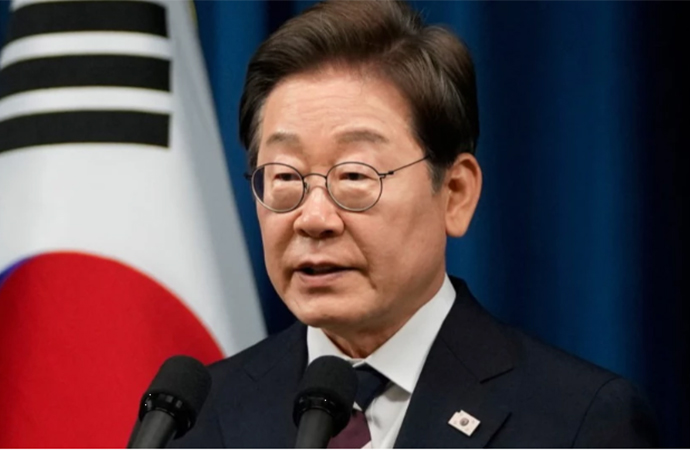
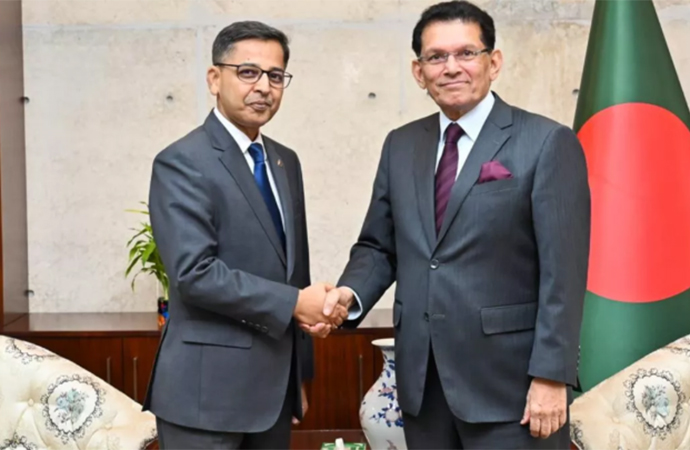
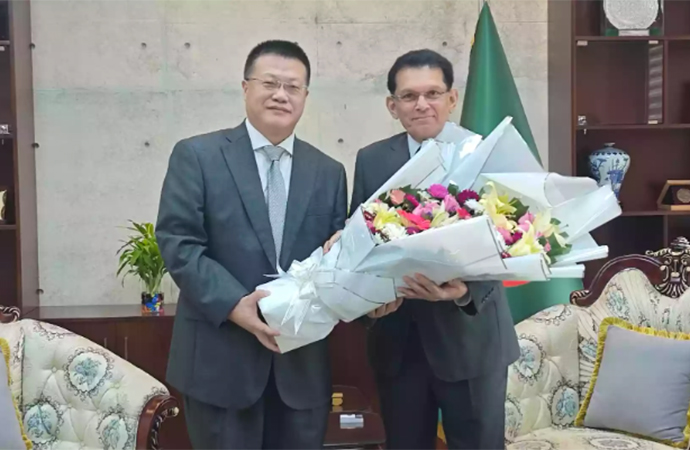
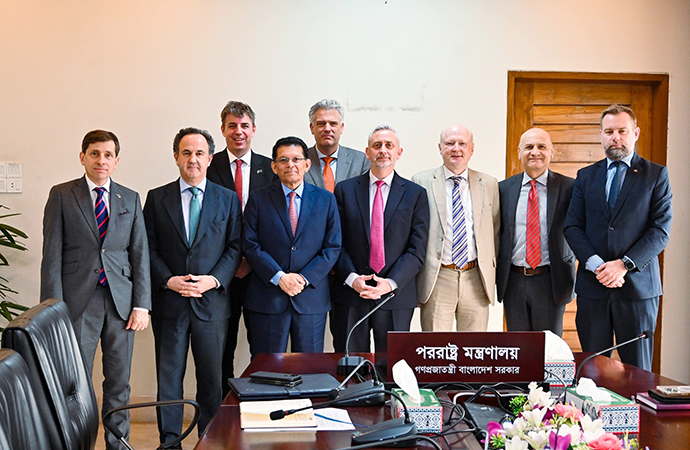
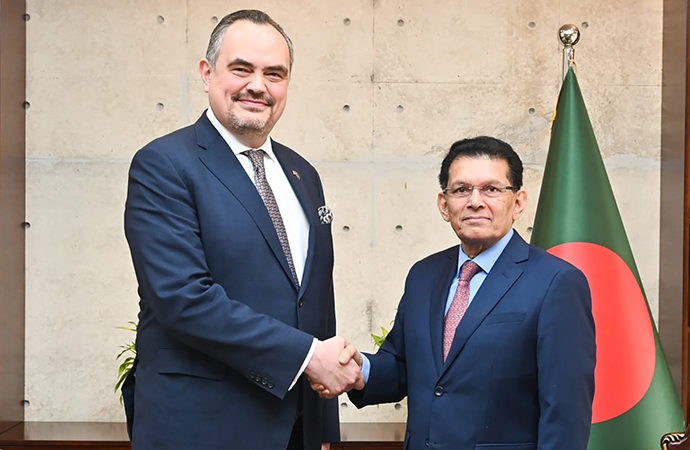







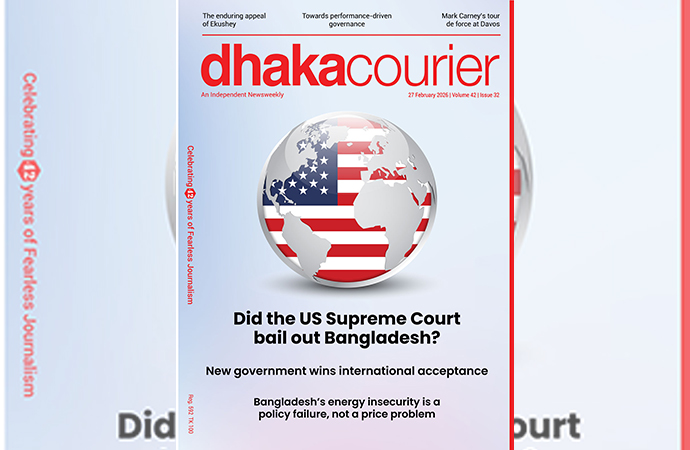





Leave a Comment
Recent Posts
Bangladesh’s first drought-res ...
In a groundbreaking development for Bangladesh’s agriculture, Ga ...
US and Iran hold another round ...
Iran and the United States were holding another round of indirect talk ...
An early hiccup for the new government?
Japan invites PM Tarique, eyes cooperation with Bang ..
Bangladesh to achieve sustained growth, prosperity u ..
Dhaka indicates ‘forward looking, balanced partnersh ..